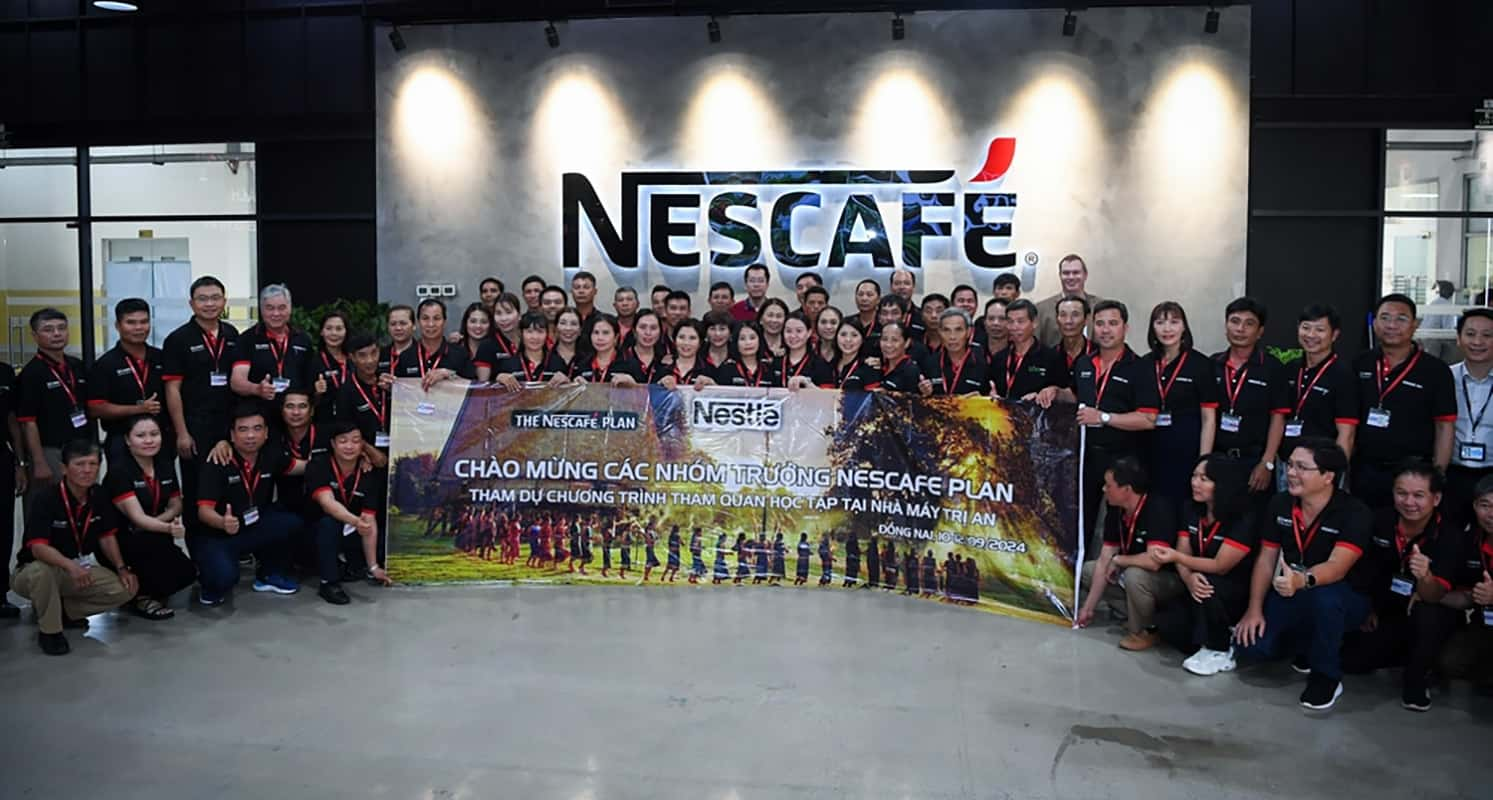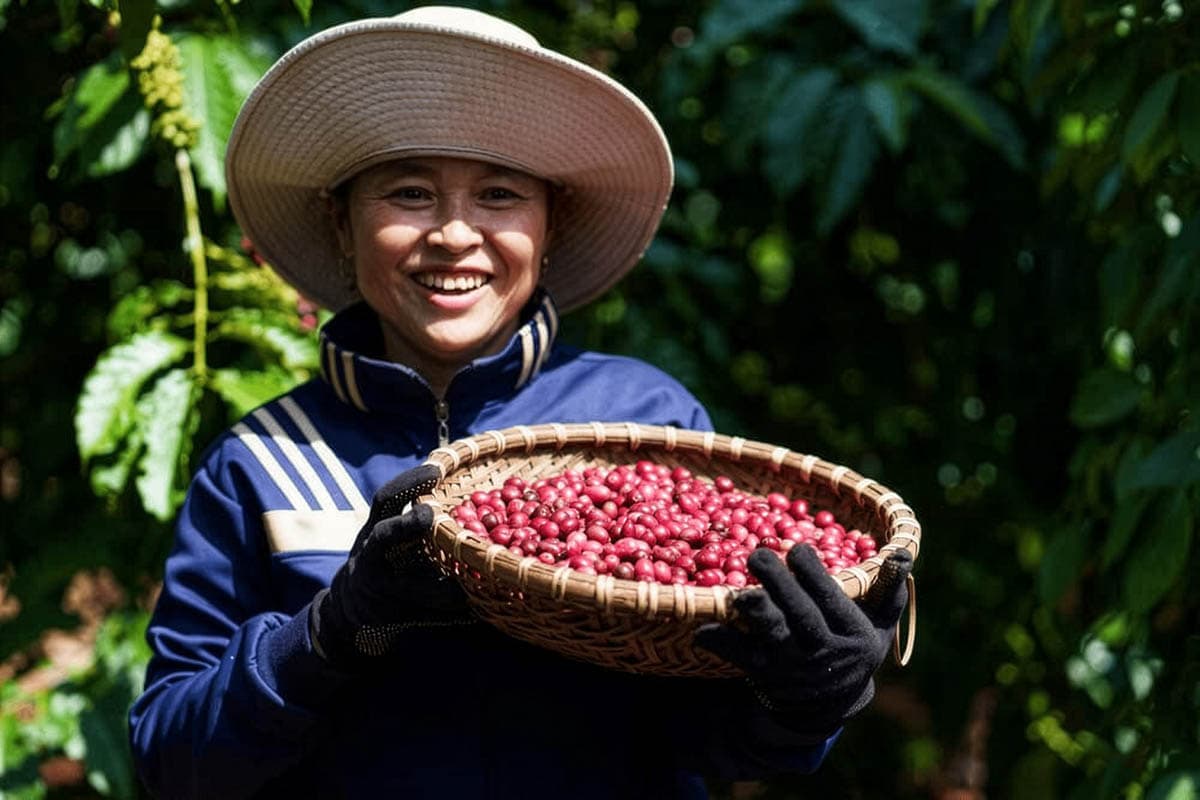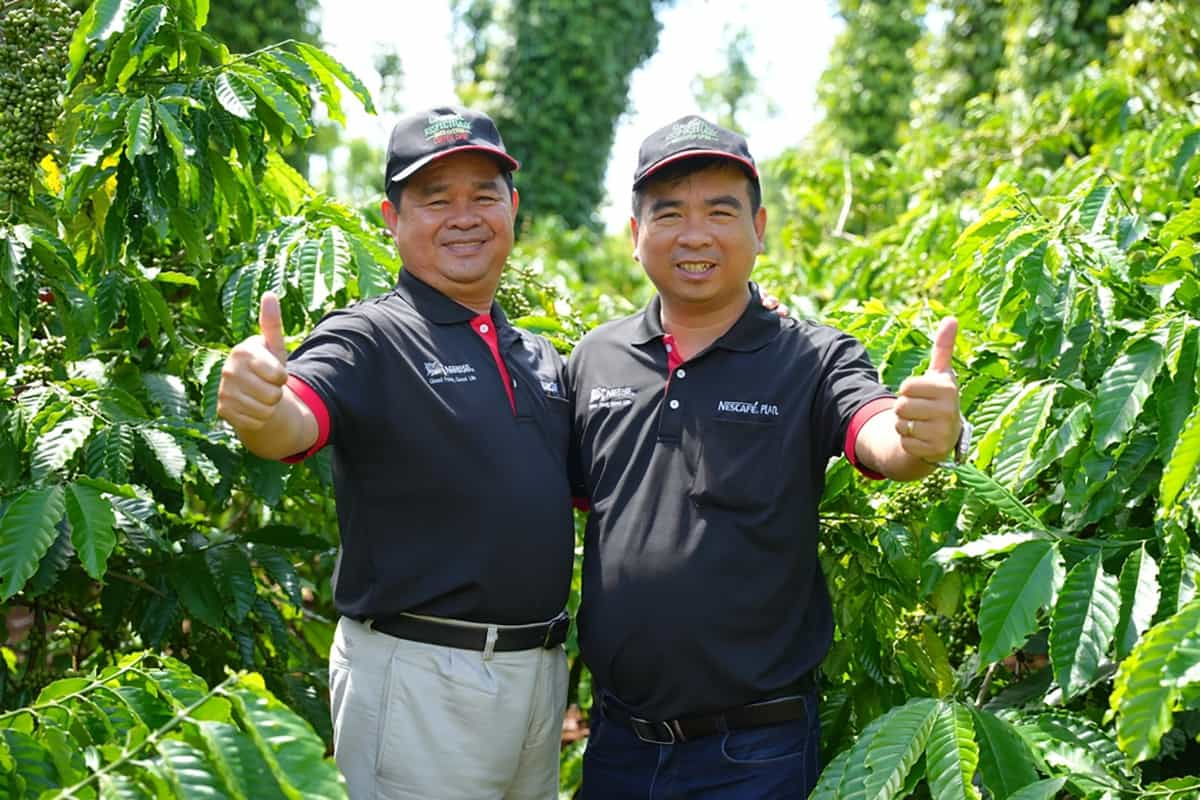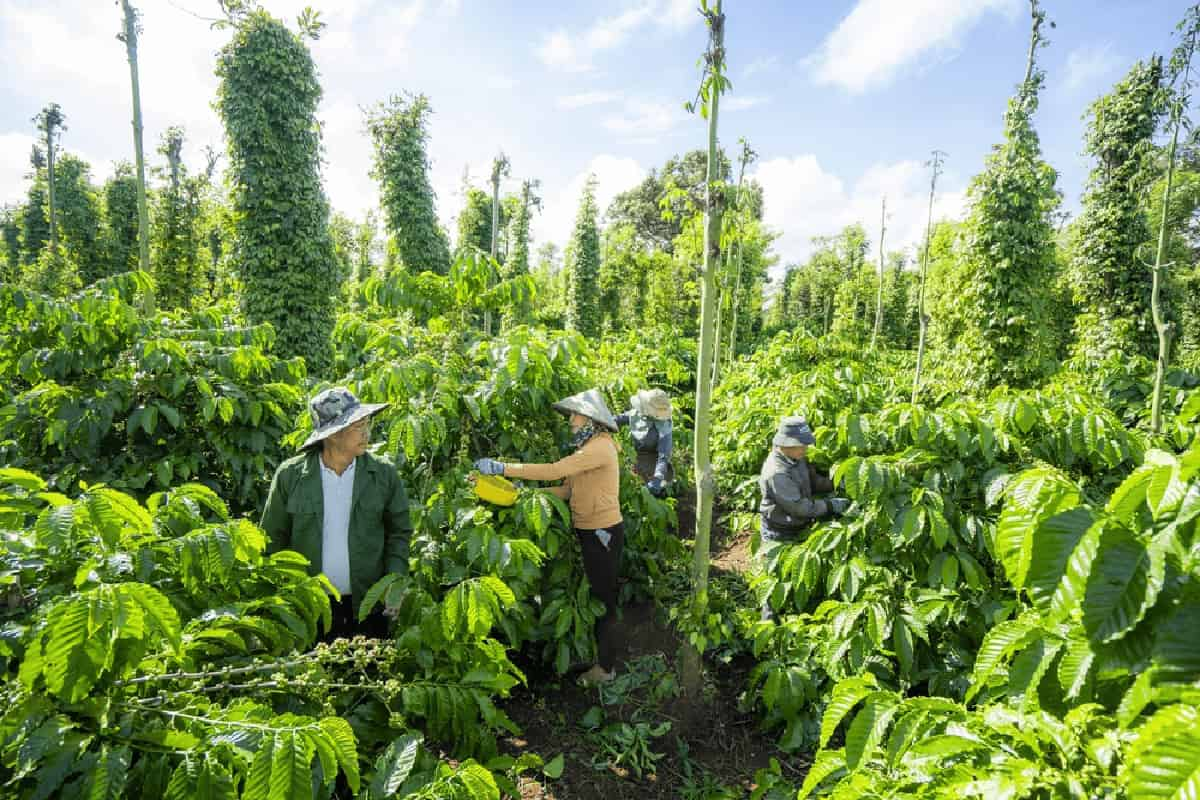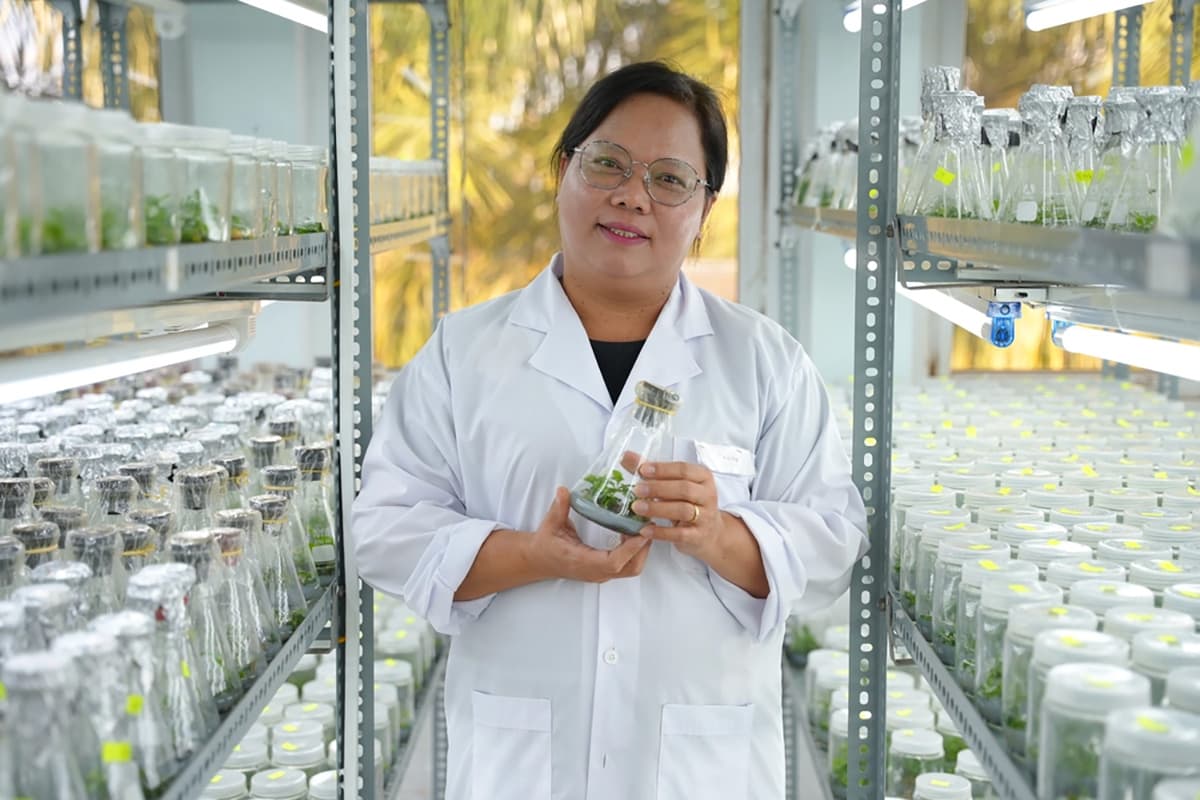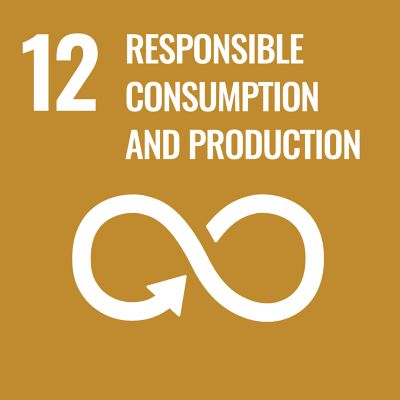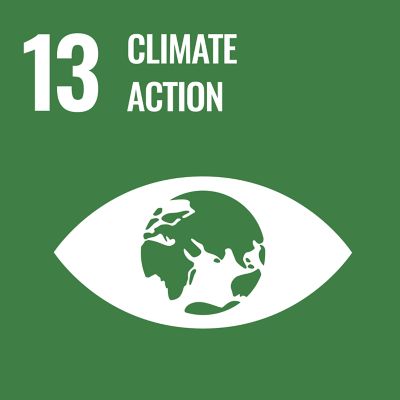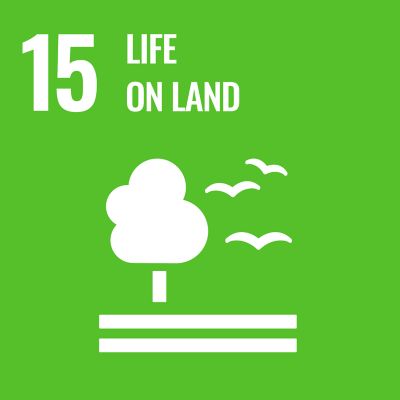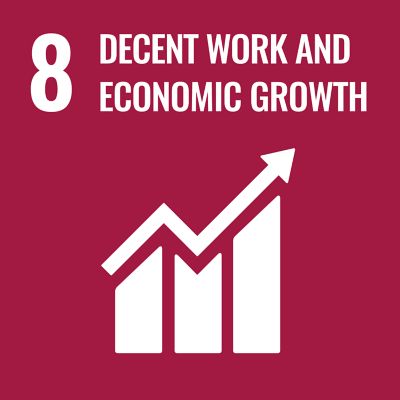Promoting regenerative agriculture for a sustainable future and the prosperity of coffee farming communities.
The Nescafé Plan is a global initiative implemented by Nestlé Group since 2010 in over 15 countries across key coffee-growing regions worldwide. In Vietnam, the Nescafé Plan has been implemented in the Central Highlands provinces from 2011 to the present. As a long-term program, based on multi-stakeholder cooperation with the Ministry of Agriculture and Rural Development, the Extension Centers of the Central Highlands provinces, and the Western Highlands Agriculture and Forestry Science and Technology Institute (WASI), the Nescafé Plan aims to partner with farmers to build a regenerative agricultural system, with the objectives of: comprehensively improving farmers' livelihoods; supporting the transition to low-emission coffee farming to address climate change; and contributing to Nestlé Group's overarching goal of achieving net-zero emissions by 2050. After more than 13 years of implementation, the Program has achieved significant recognised accomplishments, particularly in improving and enhancing the livelihoods of thousands of farmers in the Central Highlands region.
Key statistics
20%
Reduction in chemical fertilisers and pesticides
30-150%
The percentage of increased farmer income, especially through intercropping methods
40-60%
The amount of irrigation water saved through drip irrigation and soil moisture retention techniques
30
Export markets
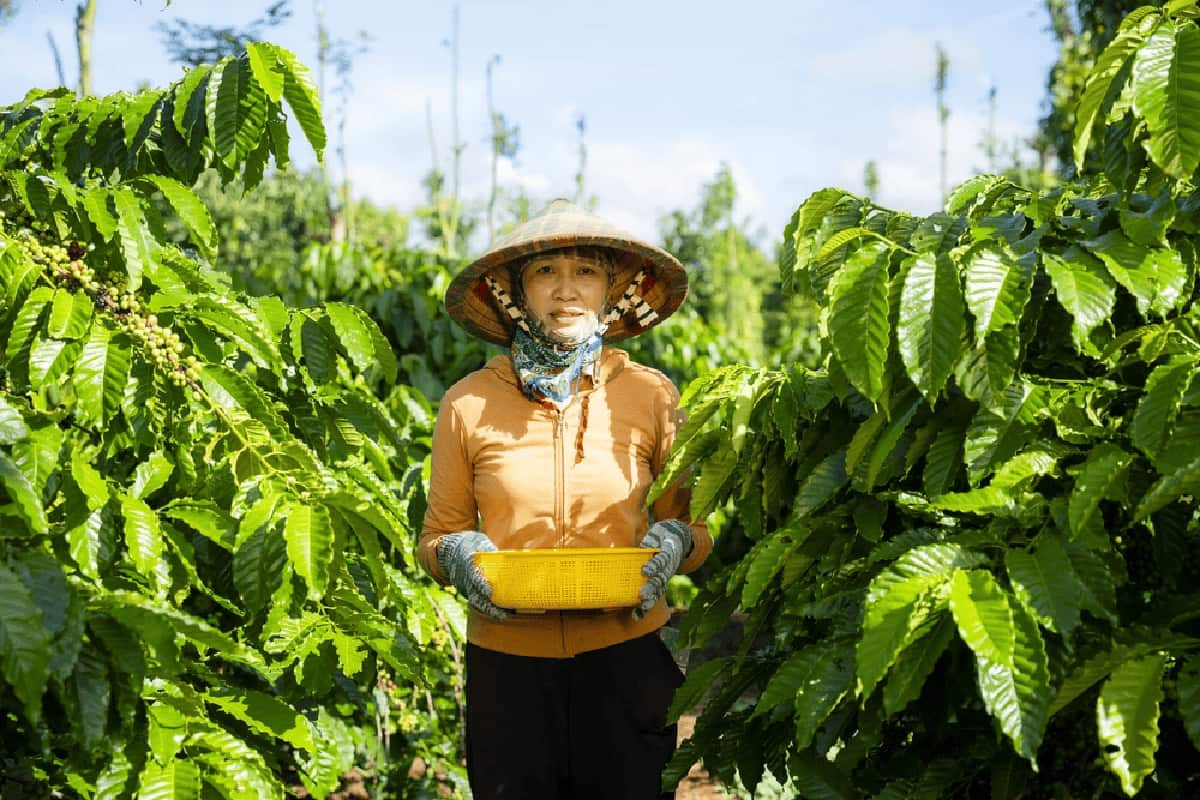
- 21,000+ farmer households have accessed and practiced the 4C criteria
- 274 farm group leaders have welcomed program expansion
- 74million+ seedlings distributed to farmers as of 2023
- 74,000+ hectares of aged coffee areas replanted
30%
The percentage of female group leaders who participated
34%
Of participant farmers are under 30 years old
20-25%
The amount of Vietnam's coffee output purchased by Nestle
The coffee of the Central Highlands is a symbol of Vietnam's coffee industry, known and loved by people both domestically and internationally. Over centuries, coffee trees have become a source of pride and an indispensable part of the lives of farmers in the Central Highlands.
Despite being the second-largest coffee exporter and the world's leading Robusta coffee producer, Vietnamese coffee farmers have been and continue to face numerous challenges that negatively impact coffee bean yield and quality, thereby affecting income, livelihoods, quality of life for farmers, and the sustainable development of the coffee industry. These challenges stem from both internal limitations and difficulties within the industry, as well as from the external objective environment, including:
Outdated farming practices and reliance on experience not based on scientific knowledge
Farmers often engage in practices like premature harvesting, damaged processing, overuse of pesticides and crop protection chemicals, and excessive use of chemical fertilisers. Inefficient irrigation also reduces the quality of flowers and beans. Monoculture or inappropriate intercropping is also prevalent.
Habits of short-term, seasonal farming driven by market volatility
Farmers may cut down long-term crops to replace them with short-term, immediately harvested crops.
Challenges from climate change
Extreme weather events such as prolonged droughts, water scarcity, and erratic storms and floods severely affect coffee cultivation and production, impacting the entire supply chain.
Increasing area of aging coffee trees
In the Central Highlands alone, approximately 30-40% of coffee trees are aged annually, equivalent to 180,000–240,000 hectares, requiring replanting. However, resources for replanting coffee farms remain limited and challenging. (Source: Vietnam Academy of Agricultural Sciences)
Lack of successor farmers and agricultural labour
Young people tend to move to urban areas or stay in cities for careers, not returning to rural areas after their studies.
Vietnam is a crucial supplier of coffee to the global market, and the Vietnamese coffee industry significantly contributes to the national economy through exports. In recent years, sustainability regulations from major coffee importing and consuming markets worldwide have become increasingly stringent and are now mandatory requirements, rather than voluntary requests. These include regulations on pesticide residue levels, sustainable sourcing requirements (deforestation-free cultivation, supply chains that meet human rights, labor conditions, and environmental protection requirements), leading to more trade barriers.
This context necessitates urgent changes for farmers and Vietnam's coffee industry to adapt, alongside a comprehensive transformation strategy for a sustainable future. For Nestlé, Vietnam has always been a key global supplier of coffee beans. The Group annually purchases an average of 20%-25% of Vietnam's green coffee production for domestic consumption and export. To create shared value for coffee farmers and the Vietnamese coffee industry, while aiming for a responsible and sustainable supply, Nestlé Group officially launched the NESCAFÉ Plan program in Vietnam in 2011.
After more than a decade of partnering with farmers, the NESCAFÉ Plan has helped them adopt numerous technical improvements and new technologies, creating positive impacts on the lives and livelihoods of coffee farmers, as well as on the environment and the sustainable development of Vietnam's coffee industry. In 2022, Nestlé Group further announced the NESCAFÉ Plan 2030 program to accelerate the Program's progress in the coming decade, demonstrating a stronger ambition and commitment to supporting farmers in their transition to sustainable coffee cultivation through regenerative agriculture. The solid foundation of tremendous achievements over more than a decade of development is the driving force that instills confidence in NESCAFÉ Plan's future journey to bring a sustainable and better life to farmers and coffee-growing communities in Vietnam and other key targeted countries.
Regenerative agriculture is a farmer-centric approach where agricultural production aims to improve soil quality and fertility, protect water resources and biodiversity, thereby creating positive impacts that build a foundation for sustainable food production and contribute to climate change mitigation. In Vietnam, Nestlé is a pioneer in implementing regenerative agriculture through the Nescafé Plan program. Nestlé's comprehensive regenerative agriculture model focuses on three main agricultural system resources: soil, water, and biodiversity. Furthermore, Nestlé identifies farmers as the central element of the model, as they are the managers of these resources and make decisions based on their specific circumstances.
From this understanding, Nestlé Vietnam's team, in collaboration with scientific organisations and agricultural experts, supports farmers in transitioning to regenerative agricultural practices through specific actions:
Soil Conservation and Health
Soil fertility and quality are crucial for coffee plants to absorb nutrients and grow healthily. Therefore, the Program prioritises using natural cover crops, mechanical or manual weeding instead of pesticides, then using this biomass as mulch. It also limits chemical fertilisers, replacing them with organic compost made from coffee husks and poultry/livestock waste to reduce soil impact.
Water Resource Protection
Nestlé's team guides farmers in applying water-saving irrigation solutions using simple techniques and tools to reduce water consumption while ensuring coffee bean quality and farm yield. This protects precious groundwater resources and helps farmers cope with the impacts of climate change on agriculture in general and the coffee industry in particular.
Biodiversity Protection
The Program supports farmers in adopting appropriate intercropping models, combining coffee with timber trees and fruit trees like pepper and avocado. This provides additional income streams, creates shade, and forms protective buffers around coffee farms.
In parallel with these core activities, the Nescafé Plan also focuses on continuous improvement and innovation in coffee cultivation through dedicated efforts:
- Research and Development of High-Yield Coffee Varieties: Developing and distributing coffee varieties with high yields, pest resistance, and drought tolerance in partnership with WASI.
- Development of Digital Farm Management Tools: Building and developing digital farm management tools to help farmers manage their cultivation more effectively. This allows farmers to proactively manage their household economies, while Nestlé gains rapid access to data for Program monitoring and effectiveness assessment.
- Greenhouse Gas Emission Reduction Model in Coffee Cultivation: Nestlé collaborates with international organisations to conduct greenhouse gas emission inventories in coffee cultivation and sets targets to reduce emission rates in coffee farming to the lowest possible level.
- Phase 1 (2011–2021): Recording and quantifying total environmental emissions for green coffee production (kg or ton), conducting geospatial analysis integrating supply chain data with other spatial datasets (e.g., forest cover, deforestation hotspots, degraded areas, etc.) to identify potential restoration opportunities and interventions outside the farm.
- Phase 2 (2022–2025): Actively intervening with comprehensive methods, focusing on soil conservation and quality, water resource protection, and biodiversity preservation through practices geared towards regenerative agriculture (cover crops, crop rotation and diversification, soil mulching and cover cropping, reduced tillage, organic fertilisers, irrigation technology, buffer zones, integrated nutrient management, intercropping, agroforestry models and pastures, green borders and buffers, integrated pest management (IPM) and biological control, smart farming, organic matter processing and storage, livestock management, integrated grazing and pasture strategies, holistic landscape models).
Throughout its nearly 30 years of establishment and development, Nestlé Vietnam has been committed to long-term investment and contributing to Vietnam's sustainable development. Our vision is to be a local-rooted global company pioneering sustainable development. Guided by values stemming from respect, we collaborate closely with our partners to create shared value for all stakeholders. This means contributing to society while ensuring the long-term success of the business. We call this approach "Creating Shared Value" (CSV), and CSV is integrated into all our business operations. This is also the approach adopted by the NESCAFÉ Plan to simultaneously create sustainable social, economic, and environmental value for businesses, farmers, coffee-growing communities, as well as for the environment and the planet:
Integrating Social Objectives into Business Strategy
Through positive impacts on Vietnam's coffee industry, contributing to environmental protection, improving farmers' livelihoods, and promoting rural economic development, the Nescafé Plan initiative also brings strategic benefits to Nestlé itself. Through the program, the company can ensure a stable supply of high-quality coffee to meet increasing production demands.
Building Sustainable Partnerships with Stakeholders
To ensure the Program's success, we collaborate with various entities, including the Ministry of Agriculture and Rural Development, Provincial Extension Centers in the Central Highlands, and WASI.
Long-term Community Investment for Business Sustainability
The Nescafé Plan is a long-term and persistent program, demonstrating Nestlé Group's social responsibility and directly contributing to Nestlé's sustainable development goals, including the commitment to halve greenhouse gas emissions by 2030 and achieve net-zero emissions by 2050.
Measuring and Transparently Communicating Results
Nestlé Vietnam publicly discloses specific data on the Nescafé Plan's achievements in each phase, thereby building trust and support from the community and partners, optimising the impact of the CSV strategy.
Goal
13 years ago, recognizing the limitations and challenges facing Vietnam's coffee industry that negatively impacted coffee bean yield and quality, the NESCAFÉ Plan program was launched with several key objectives:
- To bring about technical improvements and adopt new technologies, positively impacting the sustainable development of Vietnam's coffee industry, moving towards low-emission coffee development resilient to climate change:
- Improve livelihoods, contributing to changing the quality of life for local farmers, and building prosperous coffee farming communities.
- Enhance the quality and value of Vietnamese coffee beans, preserving rich and flavorful coffee for Vietnamese consumers across generations, thereby helping Vietnam become a reference point for Robusta coffee globally.
After more than 10 years of effort and steadfast commitment to sustainable coffee development, the NESCAFÉ Plan program has achieved significant successes. This also serves as the foundation for Nestlé Group to announce the NESCAFÉ Plan 2030 program in 2022 with even greater objectives. The project will continue to partner with farmers in transitioning to sustainable coffee cultivation through regenerative agriculture, focusing on over 15 key countries and regions of the program, including Vietnam, with a total Nestlé Group support of CHF 1 billion by 2030 for the global NESCAFÉ Plan. Specific targets:
By 2025
- 100% of Nestlé's coffee sourced responsibly.
- 20% of Nestlé's coffee sourced from farms practicing regenerative agriculture.
By 2030
- 50% of Nestlé's coffee sourced from farms practicing regenerative agriculture.
- Reduce CO2 emissions by 50%.
Key Focus Areas in the Nescafé Plan 2030
Supporting farmers in transitioning to regenerative coffee farming
The program will continue to organize training courses and provide technical support for farmers on high-yield coffee cultivation to help them accelerate their transition to regenerative agriculture. This will focus on three main objectives: improving soil health and fertility, protecting water resources and preserving biodiversity.
Concentrating program resources in regions where Nescafé sources 90% of its coffee
The Program's team will work with coffee farmers to test, research, apply, and evaluate the effectiveness of regenerative agriculture practices. This will be prioritized in 7 regions where NESCAFÉ sources approximately 90% of its green coffee, including Vietnam (along with countries like Brazil, Mexico, Colombia, Côte d'Ivoire, Indonesia, and Honduras). Target achievements:
- 100% sustainably sourced coffee by 2025.
- 20% of sourced coffee from farms practicing regenerative agriculture by 2025.
- 50% of sourced coffee from farms practicing regenerative agriculture by 2030, as part of Nestlé's global commitment to sourcing key ingredients.
Reducing greenhouse gas emissions by capturing and storing more carbon in the soil
Nescafé aims to contribute to Nestlé's Net Zero commitment by halving greenhouse gas emissions by 2030 and achieving net-zero emissions by 2050. The program will work with farmers, suppliers, and partners to help protect agricultural land, enhance biodiversity, and prevent deforestation. It also plans to assist farmers in planting over 20 million trees on or near Nestlé coffee farms globally, including in Vietnam.
Piloting a Financial Support Program for Select Nescafé Plan Implementing Countries
The Nescafé Plan is committed to supporting farmers in embracing the risks and costs associated with transitioning to regenerative agriculture. Accordingly, the NESCAFÉ Plan is developing specific programs to help farmers improve their income during this transition. Furthermore, through a monitoring and evaluation system in collaboration with Rainforest Alliance and other partners, the project closely tracks progress and assesses the income achieved by coffee farmers to ensure the effectiveness of its field programs.
Vision
With the Nescafé Plan 2030, Nestlé Group demonstrates a vision to comprehensively support farmers in transitioning to regenerative agriculture. The solid foundation of immense achievements over more than a decade of development is the driving force that gives us confidence in the future journey of the Nescafé Plan to continue its sustainable development path towards building a regenerative coffee industry, and setting the goal to accelerate the project's progress in the coming decade, addressing climate change issues and socio-economic challenges within its value chain.
Implementation process – Scope – Cost
- 2010: The global NescaféPlan initiative is launched by Nestlé Group.
- 2011: NescaféPlan is officially piloted in Vietnam across three provinces: Dak Lak, Lam Dong, and Dak Nong.
- 2012:Nescafé Plan expands to Gia Lai province, covering key coffee-growing areas in the Central Highlands, including Dak Lak, Dak Nong, Gia Lai, and Lam Dong.
- 2015: Implementation of the FARMS and FFB (Digital Farmer Field Book) software to manage data directly from each farm, providing timely support for individual households.
- 2019: Received an award from the Ministry of Agriculture and Rural Development for outstanding contributions to Vietnam's coffee industry and sustainable agricultural development through a Public-Private Partnership (PPP) model, contributing to rural agricultural development.
- 2021-2024: Collaborating with the International Labour Organization (ILO) to conduct training and scale up best practices in Occupational Safety and Health (OSH) and Labor Law.
- Phase 2011-2024: Implementing appropriate intercropping models, helping farmers increase income by 30% - 100% on the same unit of area.
Since its inception in Vietnam, the NESCAFÉ Plan has established a team of agricultural support officers (currently 8 members) to manage and supervise field activities with farmers. In addition to the agricultural officers, the program develops and trains a team of 274 farmer group leaders, who act as extensions of the program to help disseminate, connect, and share knowledge. Each farmer group assists each other in replicating good and sustainable farming models and practices, while also establishing mutual monitoring mechanisms to minimize poor practices.
The program also places a strong emphasis on widespread farmer training and capacity building. From 2011 to 2023, NESCAFÉ Plan introduced the Good Agricultural Practices (GAP/NBFP) model, organizing over 355,000 training sessions for farmers. These sessions helped them apply the learned knowledge on their farms, leading to a 40%-60% reduction in irrigation water use and a 20% decrease in chemical fertilizers and pesticides compared to before participating in the Program. Furthermore, the NESCAFÉ Plan program has partnered with the International Labour Organization (ILO) to implement a project aimed at enhancing knowledge and practices in occupational safety and health and Labor Law. From 2021 to date, 22,050 farmer training sessions have been conducted, helping farmers better protect their health and that of their families during cultivation. An estimated 17,050 training sessions are planned for 2024.
To date, the Program has facilitated connections and supported over 21,000 farming households in adopting and implementing the 4C criteria. This has created a sustainable raw material base with a total area of over 34,000 hectares of 4C coffee, providing an average annual output of over 122,000 tons of quality coffee. Sustainable and efficient cultivation practices have helped farmers increase their average income by 30% - 150%, significantly improving the quality of life and livelihoods for their families.
In addition to supporting farmers in their transition to sustainable cultivation, research and impact assessment activities are also key focuses of the NESCAFÉ Plan Program, including:
- Research and Development of Coffee Varieties: Collaborating with the Western Highlands Agriculture and Forestry Science and Technology Institute (WASI) to develop and distribute high-quality, climate-resilient coffee varieties. This initiative began from the early stages of implementation. The program has supported the distribution of over 74 million seedlings from 2011 to 2023, with over 12 million more seedlings distributed to farmers in 2024. This has aided in replanting over 86,000 hectares of aged coffee in the Central Highlands.
- Annual Collaboration with Rainforest Alliance: Partnering with Rainforest Alliance for the Program's Impact Assessment (M&E) Report.
Improved Quality of Life and Livelihoods for Coffee Farmers
- Helped over 21,000 farming households access and practice coffee production according to the 4C criteria, leading to income increases of 30% to 150% through reasonable intercropping models and cost savings in cultivation (water, fertilizers, etc.). Supported an average of 15,000 farmers annually with seedlings (2011-2023).
- Distributed over 74 million disease-resistant, high-yield, high-quality seedlings, actively supporting the replanting of aged coffee areas and farm rehabilitation (2011–2023).
- Conducted training on sustainable coffee cultivation and climate change adaptation; enhanced knowledge and practices in occupational safety and health in coffee farming for over 355,000 farmers. Of these, over 35% of participants were women (2011–2023).
- Established 274 farmer groups, with 30% led by women, contributing to enhancing the role and position of female farmers.
- Supported young farmers in entrepreneurship and enhancing soft skills in farm management, contributing to building a successor generation for the coffee industry. To date, 34% of farmers participating in the Program are under 30 years old.
- Supported the development and construction of digital farm management tools (Digital Farmer Field Book - FFB and Koltitrace App) to help farmers manage their household economies more effectively, replacing paper-based management.
- Enhanced information and knowledge sharing for the farmer community through the Agrinest online information network, facilitating swift and easy information exchange.
Promoting Good Practices Towards Regenerative Agriculture, Restoring Ecosystems, Enhancing Coffee Farm Resilience and Climate Change Adaptability, Aiming for a Sustainable, Low-Emission Coffee Industry
- Rehabilitated over 74,000 hectares of aged coffee areas through the distribution of disease-resistant, high-yield, and good-quality seedlings (2011–2023).
- Saved 40% to 60% of irrigation water through the application of efficient and effective irrigation methods and techniques.
- Reduced chemical fertilizer and pesticide use by 20%, replacing them with organic compost made from coffee husks and poultry/livestock waste.
- Achieved yields 15% higher than the national average.
- 86% of coffee farms practice intercropping with an average of 3 different crop types.
- Appropriate intercropping methods improve land use efficiency to protect soil quality and fertility, thereby increasing carbon sequestration in the soil, reducing environmental emissions, and conserving biodiversity.
- Implemented Agroforestry projects with intercropping of 2.3 million trees (timber, fruit trees) within coffee farms to absorb and store CO2 (estimated at approximately 480,000 tons of CO2 over a 5-year period from 2023-2027) and enhance biodiversity.
Building a Model of Chain Linkage, Enhancing the Value of Vietnamese Coffee Beans through Deep Processing and Export
- By promoting high-quality and sustainable coffee production, the NESCAFÉ Plan contributes to perfecting the value chain linkage in sustainable coffee production from farmer to consumer, thereby enhancing the value of Vietnamese coffee beans.
- Annually, Nestlé purchases 20-25% of Vietnam's coffee output, with an average total value of USD 700 million, primarily for deep processing for domestic consumption and export. 100% of this coffee meets the 4C international certification code of conduct criteria. This has been a driving force for promoting certified, traceable coffee production in Vietnam.
- All green coffee beans purchased from Vietnam come from responsible sourcing of high-quality Vietnamese coffee, thanks to the application of sustainable farming techniques from the NESCAFÉ Plan. To date, Nestlé's coffee products are exported to nearly 30 countries and regions worldwide, including demanding markets like Europe, the USA, Australia, Japan, and South Korea.
The Nescafé Plan model is highly regarded for its replication potential, achieving positive results across multiple facets simultaneously: technical guidance, management training, agricultural product procurement, processing organization, and value chain distribution. Launched in 2011, the NESCAFÉ Plan in Vietnam has continuously expanded in scope over time with the addition and improvement of various components.
The Nescafé Plan identifies farmers as the central focus, considered a key factor in scaling up the program. Vietnam currently has over 18 million farming households, who are the key drivers of climate change adaptation and sustainable development actions in the agricultural sector. As those directly involved in cultivation, crop care, and harvesting, enhancing farmers' awareness of sustainable development not only increases their income but also accelerates the implementation of sustainable agriculture goals.
To date, the Program has conducted training sessions for hundreds of thousands of coffee farmers. Notably, the NESCAFÉ Plan has built a network of nearly 300 farmer group leaders who are well-equipped with technical knowledge and economic insights, serving as extended arms to replicate good and sustainable farming models and practices. Furthermore, the project also focuses on training young farmers, the next generation who will carry forward the development of regenerative agriculture with new farming practices and digital farm management applications.
In addition, for the successful Nescafé Plan model to be replicated in other regions, Nestlé actively shares experiences related to the program at numerous domestic and international industry events and sustainability forums. The program has also welcomed many domestic and international delegations for field visits, learning, and experience sharing over time.
Beyond environmental and social challenges, coupled with the increasingly severe impacts of climate change on agricultural production in general and the coffee industry in particular, stringent legal regulations from export markets (most recently, the EU Supply Chain Due Diligence Law, which requires companies within the EU to self-manage their value chains to prevent human rights and environmental violations, and the EU's Deforestation Regulation (EUDR) prohibiting imports of 7 commodity groups including coffee, palm oil, timber, rubber, beef, cocoa, and soy if their production causes deforestation), the NESCAFÉ Plan, with its comprehensive and long-term action plan, has significantly helped farmers and partners in the coffee supply chain prepare to meet the increasingly stringent sustainability requirements set by international markets. This demonstrates the positive value the Program brings by creating a ripple effect across the coffee value chain, and more broadly, serving as an exemplary model for other agricultural production sectors in Vietnam to learn from and adopt its experiences.
Case Ownership
Leading Organisation: Nestlé Vietnam Co., Ltd.
Collaborating Partners: Western Highlands Agriculture and Forestry Science and Technology Institute (WASI), Koltiva (Indonesia) – Development of the Koltitrace traceability platform, Agrinest – Assessment of regenerative agriculture practices, Key farmer group systems in the Central Highlands region, Sustainable coffee certification organisations (4C, Rainforest Alliance)
Key stakeholders and beneficiaries: Nearly 21,000 farming households, 274 farmer groups, with 30% of group leaders being women, Nestlé Vietnam's Agricultural Development Team, Technical experts from WASI and partner organisations
Source: Human Act Prize
All images, videos, information, and data related to this project published on this landing page have been provided and are the responsibility of the individuals or organizations registered for the Human Act Prize. The content republished on this landing page has been verified and authorized by VCCorp Joint Stock Company, co-organizer of the Human Act Prize.
Specific SDG targets
SDG 12..2
Sustainable management of natural resources
SDG 13.3
Enhance education and awareness on climate change mitigation
SDG 15.3
Combat desertification, restore degraded land and soil
SDG 8.5
Full and productive employment and decent work







